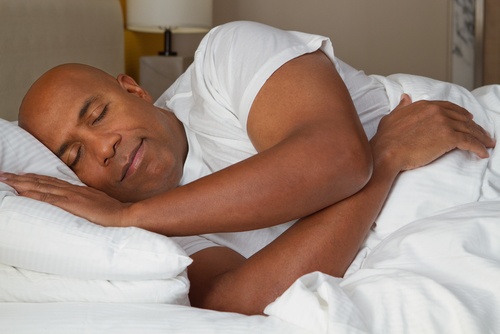 Everyone enjoys a good night’s sleep, but without it, not only is your mood affected, so is your overall health.
Everyone enjoys a good night’s sleep, but without it, not only is your mood affected, so is your overall health.
The simplest way to achieve more and better sleep is to practice good sleep hygiene.
What is Sleep Hygiene?
Sleep hygiene refers to the habits, tips, and lifestyle changes that influence sleep.
Sleep is important to everyone’s health. It influences nearly every area of a person’s health. According to the National Institutes of Health (NIH), “sleep plays a vital role in good health throughout a person’s life. In fact, getting enough quality sleep protects physical and mental health, safety, and quality of life.”
The Benefits of Good Sleep Hygiene
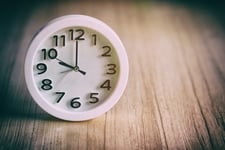 A good night’s sleep is closely linked to good health. Developing a good sleep hygiene routine will help prevent the development of sleep disorders and problems.
A good night’s sleep is closely linked to good health. Developing a good sleep hygiene routine will help prevent the development of sleep disorders and problems.
Studies have shown that good, quality sleep can be beneficial to the immune system, a body’s reaction to insulin, the healing and repair of the heart and blood vessels, brain function, and emotional well-being.
Conversely, bad sleep hygiene or poor sleep can contribute to depression, suicide, mood swings, impulsivity, a lack of motivation, focus, stress, and decreased learning ability. It can also increase the risk for high blood pressure, kidney disease, heart disease, diabetes, obesity, and stroke.
Barriers to Good Sleep
There are many barriers to a good night’s sleep; stress is the leading cause for short-term sleep deprivation.
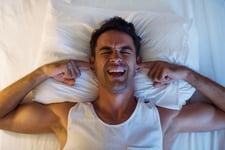 Environmental Barriers
Environmental Barriers
Where you sleep and the atmosphere that surrounds it is significantly important.
Environmental factors like a bedroom that is too hot, cold, noisy, or bright can be a barrier to sound sleep.
Other influences may include a bed that is too small or uncomfortable, interruptions from children, or a sleep partner with different sleep preferences or who snores loudly or has restless legs.
 Lifestyle Barriers
Lifestyle Barriers
A person’s lifestyle can also create many barriers to good sleep hygiene—travel and alcohol consumption are two examples.
Travel, especially across time zones, can definitely disrupt a person’s circadian rhythms or internal clock.
Consuming alcohol or caffeine in the afternoon or evening, or participating in intense activities such as exercise close to or right before bedtime, will also negatively impact a person’s sleep hygiene and disrupt sleep.
 Occupational Barriers
Occupational Barriers
Access to technology and work hours both contribute to occupational barriers to good sleep hygiene.
Workers with nontraditional schedules (rotating schedules, on-call, early morning, or overnight) are at risk for shift work disorder.
Shift work disorder (SWD) can look like insomnia, but should not be confused with it. With shift work disorder, a person can have trouble staying asleep or even trouble falling asleep. Shift work is very disruptive to sleep and is intolerable for many people.
Best Practices for Sleep Hygiene
Developing good sleep habits is key to getting enough quality sleep. So, what constitutes a good sleep hygiene routine? According to the National Sleep Foundation (NSF), here are the do's and don’ts for good sleep hygiene:
DO:
-
Exercise in the morning or late afternoon. Yoga is particularly relaxing.
-
Get adequate exposure to natural light.
-
Establish a regular relaxing bedtime routine.
-
Associate your bed with sleep.
-
Avoid emotionally upsetting conversations before you go to bed.
-
Make sure that your bedroom is quiet and your bed is comfortable.
-
Shut off electronics at least one hour before bedtime.
Don’t
-
Take naps.
-
Consume stimulants such as alcohol, caffeine, and nicotine close to bedtime.
-
Don't bring your problems to bed.
-
Let your bedroom be too hot or cold, or even too bright.
-
Eat large meals close to bedtime.
Sleep Deprivation or Sleep Disorder?
There is a difference between trouble falling asleep and a sleep disorder.
Some causes of sleep deprivation are alcohol consumption, a decrease in REM sleep, prescribed medication, over the counter medication, lack of activity, frequent urination, caffeine consumption, or chronic pain.
Diagnosing sleep disorders can be difficult. A thorough screening may be necessary to determine the possibility of a hidden sleep disorder.
Common sleep disorders include:
-
Sleep Apnea: Sleep apnea is when a person’s breathing during sleep repeatedly stops and starts, causing disruptions to sleep as well as dangerous shortages of oxygen in the bloodstream. Types of sleep apnea are obstructive sleep apnea, central sleep apnea, and complex sleep apnea syndrome. Some symptoms of sleep apnea include loud snoring, morning headaches, abrupt awakenings, and insomnia.
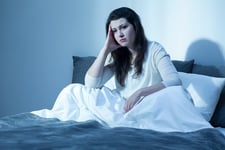
-
Insomnia: This describes trouble falling asleep or staying asleep throughout the night.
-
Restless Legs Syndrome (RLS): Also known as Willis-Ekbom disease, RLS can cause an uncomfortable sensation or urge to move your legs while you try to fall asleep.
-
Narcolepsy: Extreme sleepiness and falling asleep suddenly during the day.
What Healthcare Professionals Need to Know
When treating sleep disorders in patients, it is important that healthcare professionals are educated and informed of therapies and practices that have been proven effectiven for treating sleep disorders.
Sleep Patterns
There are two types of sleep patterns. These are non-rapid eye movement (or NREM) and rapid eye movement (or REM). During NREM sleep, a person experiences four stages ranging from a light to deep sleep. Dreaming occurs once a person enters REM sleep. People typically cycle through the NREM-REM stages of sleep about every 90 minutes.
A decrease in REM sleep will negatively impact the quality of a person’s sleep at night, causing fatigue during the day. Conversely, daytime fatigue contributes to an inability to sleep well at night.
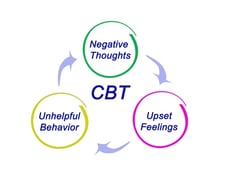 Cognitive Behavior Therapy
Cognitive Behavior Therapy
According to the American Psychological Association, cognitive behavioral therapy (CBT) teaches people how to recognize and then change dysfunctional beliefs and patterns of behavior to solve their problems.
CBT has been shown to help conquer insomnia to fall asleep. When it is used for insomnia, it is referred to as CBT-i.
Some studies have shown that CBT is more effective than sleeping pills and has a 70 to 80 percent success rate in a clinical setting for those suffering from chronic insomnia.
Everyone benefits from good sleep hygiene. Remember, everyone needs adequate quality sleep. Your health may be significantly damaged without it. The easiest way to avoid developing sleep problems in the first place is to practice preventive sleep hygiene.
